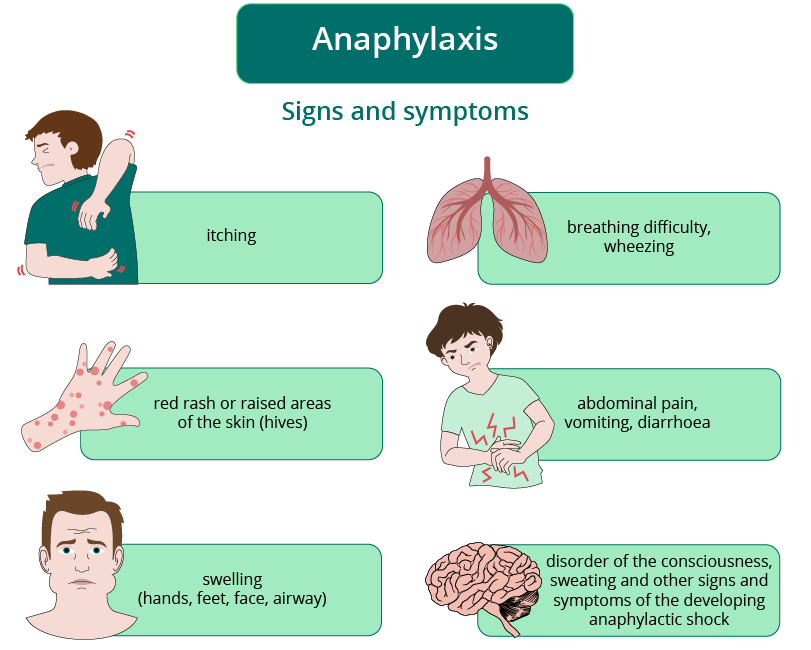Have you ever experienced an itchy mouth or throat after biting into a juicy pineapple?
While this tropical fruit is enjoyed by many for its sweet and tangy flavor, pineapple can cause uncomfortable allergic reactions for some people.
You likely have questions if you’ve noticed unpleasant symptoms after eating pineapple.
What exactly in pineapple causes these reactions? How common are pineapple allergies? Can they be serious? And what can you do to enjoy the taste of pineapple if you are allergic?
In this article, we’ll examine the proteins and enzymes in pineapple that can trigger allergic responses, the range of symptoms pineapple allergies can cause, and how pineapple allergies are diagnosed and managed.
We’ll also explore alternatives for enjoying that iconic pineapple flavor, even if you have an allergy.
So, if you’re ready to solve your pineapple problems, let’s dive in and find out!
Symptoms of Pineapple Allergy

While some people may only have mild reactions, others can experience severe, even life-threatening symptoms.
The most common signs of a pineapple allergy include:
- Itching or tingling in the mouth, throat, and lips immediately after eating pineapple
- Hives or a rash on the skin
- Swelling of the lips, tongue, throat or face
- Difficulty breathing or wheezing
- Abdominal pain, nausea, vomiting or diarrhea
- Dizziness or lightheadedness
In more severe cases, pineapple can trigger anaphylaxis – a potentially fatal allergic reaction.
Anaphylaxis signs include:
- Constriction of airways and difficulty breathing
- Rapid pulse
- Sudden drop in blood pressure
- Dizziness or loss of consciousness
It’s crucial to seek emergency medical care immediately if you experience any anaphylaxis symptoms.
One often overlooked consequence of pineapple allergy symptoms like vomiting and diarrhea is dehydration. Losing too much fluid and electrolytes can be dangerous, especially for young children and older adults.
Watch for signs of dehydration, such as:
- Extreme thirst
- Dry mouth
- Tiredness
- Dizziness
- Dark-colored urine
- Not peeing as much as usual
If you suspect dehydration, drink plenty of fluids and consider using an oral rehydration solution to replenish lost electrolytes. Severe dehydration may require IV fluids, so don’t hesitate to get medical help if needed.
While pineapple allergies can manifest differently from person to person, it’s important to take any symptoms seriously. If you notice signs of an allergic reaction after eating pineapple, stop consuming it immediately and consult an allergist for a proper diagnosis and management plan.
Anaphylaxis: The Severe Risk of Pineapple Allergy

Anaphylaxis is a severe allergic reaction that can come on rapidly and can be life-threatening if not treated immediately.
Anaphylaxis occurs when your immune system releases a flood of chemicals, including histamine, that can cause you to go into shock. Your blood pressure drops suddenly, and your airways narrow, making breathing difficult.
If you or someone you know experiences these symptoms after eating pineapple, it’s crucial to administer epinephrine (if prescribed) and call 911 immediately. Anaphylaxis can be fatal if not treated promptly.
It’s important to remember that even if you’ve only had mild allergic reactions to pineapple in the past, there’s still a risk of anaphylaxis. Allergies can worsen over time, so it’s essential to work with an allergist, carry an epinephrine auto-injector if prescribed, and have an emergency plan.
With proper management and precautions, you can minimize the risk of this potentially severe reaction.
Potential Causes of Pineapple Allergy
One possible cause is genetics. If you have a family history of allergies, particularly food allergies, you may be more likely to develop a pineapple allergy. Researchers have identified certain genes that can increase your risk of allergic reactions.
Another potential cause is latex-fruit syndrome. If you have a latex allergy, you may also experience allergic reactions to certain fruits, including pineapple. This is because some fruits, like pineapple, contain proteins similar to latex.
Oral allergy syndrome (OAS) can also contribute to pineapple allergies. In OAS, the immune system mistakenly mistakenly mistakes certain proteins in fruits and vegetables for pollen, triggering an allergic reaction. This cross-reactivity is more common in people with hay fever or other pollen allergies.
However, the most significant factor in pineapple allergies appears to be a specific enzyme called bromelain. Bromelain is a mixture of enzymes found naturally in pineapple juice and stems.
It’s often extracted and used as a dietary supplement for potential health benefits. However, for some people, bromelain can trigger an allergic response.
When you eat pineapple, bromelain can cause your immune system to release histamine and other chemicals, leading to allergy symptoms. The higher the concentration of bromelain in the pineapple, the more severe your reaction may be.
It’s important to note that having one or more of these risk factors doesn’t necessarily mean you’ll develop a pineapple allergy. Likewise, you can still have a pineapple allergy without known risk factors.
Working with an allergist is the best way to determine the underlying cause of your allergy and develop an appropriate management plan.
Diagnosing Pineapple Allergy
It’s important to note that self-diagnosis is never recommended regarding food allergies. Allergy tests can be complex, and results may require careful interpretation by a trained specialist.
If you have a confirmed pineapple allergy, your allergist will work with you to develop a management plan. This may include strategies for avoiding pineapple, medications to treat allergic reactions, and an emergency plan in case of accidental exposure.
Remember, while a pineapple allergy can be challenging, you can still enjoy a varied and nutritious diet with proper diagnosis and management. Don’t hesitate to seek the expertise of an allergist to ensure your health and well-being.
Managing Pineapple Allergy
Living with a pineapple allergy can be challenging, but with careful management, you can minimize your risk of allergic reactions.
The most important step in managing a pineapple allergy is to avoid consuming pineapple and pineapple-containing products. This requires diligent label reading and clear communication about your dietary restrictions.
When shopping for packaged foods, always read the ingredient list carefully. Look for pineapple or bromelain listed as an ingredient, and be aware of potential cross-contamination risks.
Some products may be processed in facilities that also handle pineapple, so it’s essential to look for precautionary statements like “may contain pineapple” or “processed in a facility that also processes pineapple.”
Eating out can be particularly challenging for people with food allergies. Don’t hesitate to communicate your allergy to restaurant staff, including servers, managers, and chefs.
Ask about the ingredients in dishes and the potential for cross-contamination in the kitchen. If you’re unsure about the safety of a particular dish, it’s always better to err on the side of caution and choose something else.
In addition to dietary management, having an emergency plan is crucial in case of accidental pineapple exposure. Work with your allergist to develop a plan that includes recognizing the signs of an allergic reaction, administering epinephrine if prescribed, and seeking emergency medical care when necessary.
Remember, while managing a pineapple allergy requires careful planning and vigilance, it’s possible to live a full and healthy life with this condition.
By staying informed, communicating clearly, and being prepared for emergencies, you can minimize your risk of allergic reactions and focus on enjoying safe foods.
Treatment Options for Pineapple Allergy
Over-the-counter antihistamines can be helpful for mild allergic reactions, such as itching or hives. These medications block the effects of histamine, a chemical released by your immune system during an allergic reaction.
Some common antihistamines include diphenhydramine (Benadryl), loratadine (Claritin), and cetirizine (Zyrtec). Always follow the dosage instructions on the label or as directed by your allergist.
In more severe cases, your allergist may prescribe corticosteroids to help reduce inflammation and alleviate symptoms. Depending on the severity of the reaction, these medications can be taken orally or intravenously. Corticosteroids can be particularly effective in treating respiratory symptoms, such as wheezing and difficulty breathing.
However, the most critical treatment for severe pineapple allergy is epinephrine. This medication, administered via an auto-injector (such as an EpiPen), can rapidly reverse the symptoms of anaphylaxis, a potentially life-threatening allergic reaction. If you have been prescribed an epinephrine auto-injector, you must carry it with you at all times and know how to use it properly.
If you or someone you know experiences signs of anaphylaxis, such as difficulty breathing, rapid heartbeat, or dizziness, administer the epinephrine immediately and call 911.
In addition to these treatments, your allergist may recommend other strategies for managing your pineapple allergy, such as wearing a medical alert bracelet or participating in immunotherapy (allergy shots) to help desensitize your immune system over time.
Conclusion
Pineapple allergies, though rare, can cause symptoms from mild itching to life-threatening anaphylaxis.
We’ve discussed the various causes of pineapple allergy, including genetics, latex-fruit syndrome, oral allergy syndrome, and the role of the enzyme bromelain. We’ve also covered the diagnostic tests available, such as skin prick tests, blood tests, and oral food challenges.
Managing a pineapple allergy requires careful avoidance of pineapple and related products and is prepared with treatment options like antihistamines, corticosteroids, and epinephrine for severe reactions.
If you suspect you have a pineapple allergy, don’t hesitate to consult an allergist for personalized advice and management strategies. With proper care and precautions, you can still enjoy a varied, healthy diet while keeping your allergies at bay.
The article you’ve just read provides valuable information about pineapple allergies. If you found it helpful, please consider sharing it with others who might benefit from this knowledge. Together, we can raise awareness and support those living with food allergies.
Sources:
Pineapple Allergy: Symptoms, Cross-Reactivity, Testing, & Treatment
Pineapple Allergy Symptoms & Treatment in St. Louis
6 Natural Antihistamines to Help With Allergies – Verywell Health






